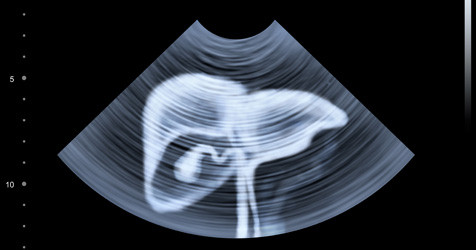
LIVER METASTASES: A DETAILED REPORT
Saturday, November 2, 2019WHAT IS LIVER METASTASES?
Liver metastasis is cancer that started in another part of the body and spread to the liver. It’s sometimes called secondary liver cancer or metastatic liver disease. Liver metastasis is not the same as cancer that starts in the liver (called primary liver cancer). Liver metastasis is much more common than primary liver cancer.
WHAT ARE THE SYMPTOMS OF LIVER METASTASES?
Symptoms of liver metastases vary depending on the number of tumours and where they are in the liver. Some of the symptoms are:
- Loss of Appetite
- Nausea
- Fatigue
- Weight Loss
- Fever
- Jaundice
- Itchy Skin
- Discomfort or Pain in the Abdomen
- Swelling of the Abdomen and Ankles
HOW TO DIAGNOSE LIVER METASTASES?
The following tests may be used to diagnose liver metastases.
- Blood Tests: The most common blood tests used to help diagnose liver metastases are liver function tests. Sometimes tumour marker tests such as carcinoembryonic antigen (CEA) are done and an increase in CEA levels over time could mean the cancer may have spread to the liver.
- Computed Tomography (CT) Scan: It is a common imaging test to check for liver metastases. It can also check for metastases in organs and tissues around the liver.
- Ultrasound: Used to check for an enlarged liver or changes in its shape or texture.
- Laparoscope: A procedure that uses an endoscope (a thin, tube-like instrument with a light and lens) to examine a specific area of the liver.
- Magnetic Resonance Imaging (MRI): It may be used to find small metastatic tumours in the liver.
- Positron Emission Tomography (PET) Scan: It may be used to check for metastases in organs and tissues around the liver.
- Biopsy: It is the removal of cells or tissues so they can be examined under a microscope. It may be needed to diagnose liver metastases.
WHAT ARE THE TREATMENT OPTIONS?
If you have liver metastases, your doctor will create a treatment plan just for you.
- Chemotherapy: It is the most common treatment for liver metastases, used to help stop or slow the growth of cancer and relieve symptoms. There are two ways chemotherapy is administered:
- Hepatic Arterial Infusion (HAI): It is a procedure that delivers chemotherapy directly to liver tumours through a pump to the hepatic artery.
- Chemoembolization: Also called the transarterial chemoembolization (TACE), it is a procedure that delivers chemotherapy directly to liver tumours.
- Targeted Therapy: It uses drugs that find and attach to specific substances (such as proteins) on the surface of or inside cancer cells. The targeted therapy drugs block the substances to stop or slow the growth and spread of cancer cells.
- Liver Resection: A method of surgery to treat liver metastasis when only one area or a few areas of cancer are found. The surgery removes the part of the liver that contains cancer.
- Ablation Therapy: It is a procedure that removes or destroys cells or tissues with heat, chemicals or other techniques. The following ablation therapies may be used to treat liver metastases:
- Radiofrequency Ablation (RFA): It uses electrical currents to create heat that destroys cancer cells
- Cryotherapy: It uses extreme cold to freeze and destroy abnormal and cancerous cells or tissue.
- Radiation Therapy: Radiation therapy is not used because radiation can damage the liver. Newer radiation therapy techniques can deliver more targeted doses of radiation to the liver tumours and lower the risk of liver damage. These are:
- Radioembolization: It is a procedure that delivers radiation directly to liver tumour, using tiny radioactive beads called microspheres. The beads deliver radiation only to the tumour and not to healthy liver tissue.
- Stereotactic Body Radiation Therapy: This is a type of external beam radiation therapy that delivers a high dose of radiation directly to a tumour.
- Hormonal Therapy: A treatment that adds, blocks or removes certain hormones to slow or stop the growth of cancer cells that need hormones to grow.
- Pain Medicines: They are often given because other treatments may take a while to relieve pain or may not stop pain completely. Pain medicines can be given different ways. They are usually given orally or intravenously.
WHY KIMS?
KIMS, one of the finest liver hospitals in Hyderabad, has program for treatment of patients with metastatic liver cancer integrates the most advanced treatments in a multidisciplinary approach. At Liver Specialist Hospitals in Hyderabad, our team works in collaboration with radiologists and our oncologists to identify patients who will benefit from liver-directed surgical treatment.
For patients with end stage liver metastases, we are the best liver transplant hospitals in Hyderabad, providing 100% successful transplantation procedures.